The Nova Scotia SPCA College of Animal Welfare emphasizes a hands-on real-life approach to learning. They know that many people learn best by bringing textbook learning to life and practicing newly acquired skills. It’s important for the 24 students in the College’s Veterinary Assistant Program to develop outstanding customer service skills. That’s where ‘The Phone Lady’, Mary Jane Copps, comes in.
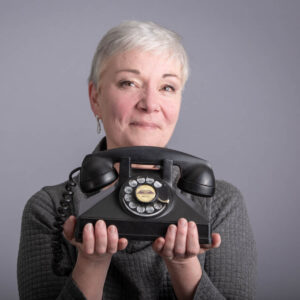
Mary Jane is passionate about creating excellent communication. She has worked with over 700 clients since launching ‘The Phone Lady’ in 2006 and has trained over 15,000 individuals, giving them the skills needed to improve all of their conversations – phone, video, in-person or email – with clients and stakeholders. The Nova Scotia SPCA is grateful that Mary Jane is volunteering her time and talent with the college.
Mary Jane explained her decision to volunteer. “I’ve definitely been an animal lover all my life and we always had dogs when I was growing up, but as an adult I’ve discovered I’m definitely a cat person. The work that the NS SPCA does is amazing. They deserve my support as well as support from all animal lovers. And while the majority of my clients are corporations that have a budget to pay me, when there’s an organization like the NS SPCA whose values align with mine and I have the ability to say yes, I do it.”
“Veterinary clinics and their staff have been very important in my life,” shared Mary Jane. “I’ve had such positive experiences dealing with them, that I’m proud to be a part of creating that experience for other clients. People have a very deep emotional connection to their pets and when you walk into a vet clinic, it’s so important how you are treated.”
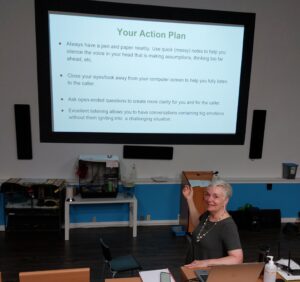
“It’s interesting to note that communication skills, and in particular phone skills, aren’t as commonplace as they used to be,” said Mary Jane. “There are many reasons why. Most students today did not grow up in a house with a home phone. They didn’t get the opportunity to practice phone communication skills and they actually don’t have those skills. In order for them to get the job they want and to start that job with confidence, it’s important for them to have those skills.”
Jen Welshman, Associate Director of Veterinary Education Programs at the Nova Scotia SPCA College agrees. She related “Most students come to us with no prior customer service experience and have never picked up the phone to answer or call anyone. The veterinary team, especially Veterinary Assistants, spend a lot of their time communicating on the phone with clients. They answer general questions, book appointments, follow up with clients, triage and provide client education. Mary Jane provides training on how to properly answer phones, create client loyalty, de-escalate arguments, deal with emotions, and work through many other challenges.”
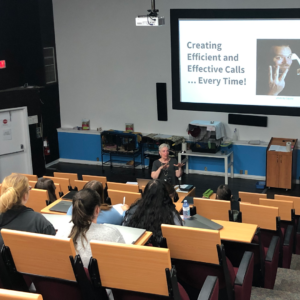
Here’s how the training works. Mary Jane calls each student, presenting as an incoming client at a veterinary clinic, before they even meet her and prior to the class. She records each conversation, sends them a recording, and they grade themselves out of 10 points for 10 skills. Jen listens to each conversation and gives each student feedback after they finish speaking with Mary Jane. She assesses their confidence, tone, and volume to get a better understanding of where everyone’s skill level is at. A week later, Mary Jane will be there in-person and will do a presentation that includes another role play around listening skills and empathy. There is a lot of interaction and discussion. And while we are primarily talking about phone skills, those skills – for example, how to work with a grieving client – are transferable to dealing with clients in a clinic/hospital.
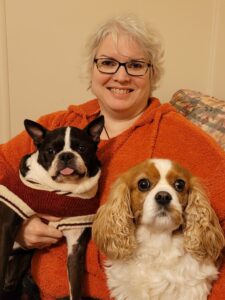
Jen explained, “With Mary Jane’s training, development of communication skills, practice and role play that takes place throughout the program, students develop the knowledge and confidence needed to become competent employees. After graduation, they can work at veterinary hospitals/clinics, shelters, boarding kennels, doggy daycares, training facilities, etc. Most workplaces require them to have customer service skills.”
Through the College, the SPCA is helping to address the shortage of veterinary professionals across the province. Graduates of the Veterinary Assistant Program feel confident and empowered to fill important workforce needs.
And more great things are coming. The Nova Scotia SPCA is working towards a start date of September 2024 for its new Veterinary Technician Program. The college is excited to be able to train more veterinary professionals who will make a positive difference in the animal welfare world.
